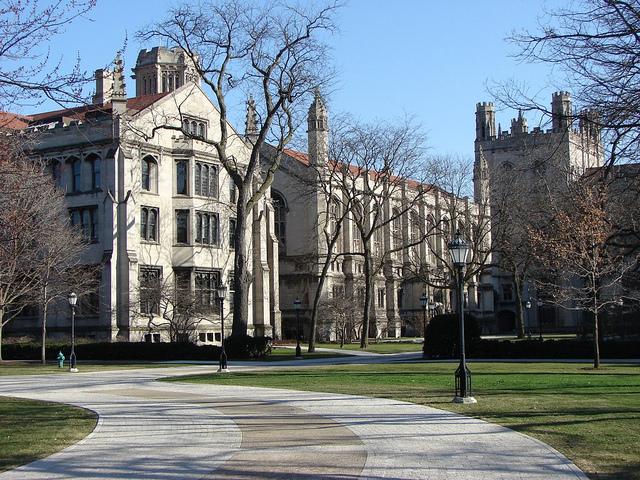On Aug. 25, the University of Chicago sent all incoming students a letter declaring the institution’s dedication to free thought — by telling them which thoughts aren’t acceptable.
In the letter, the university claimed that by denouncing trigger warnings and safe spaces, it is offering a defense of free speech on its campus. By preventing students from attempting to “retreat from ideas and perspectives at odds with their own,” the university wrapped itself in the rhetoric of conservatives unwilling to understand the perspectives of others.
Now, 150 professors at the university are standing up for the students whose school essentially told them to suck it up and called it a service to intellectual freedom. In a letter published by The Chicago Maroon, the university’s student newspaper, faculty rightfully argued that writing-off trigger warnings and safe spaces as the product of oversensitivity does a disservice to those who request them. The signers have sent a signal that freedom in academics requires listening to those actually trying to learn. If they aren’t able to accomplish that task, it isn’t the students who needs to change.
The university’s letter did not technically ban trigger warnings because it can’t. Individual instructors make the decision whether to offer trigger warning for their course content, and there’s nothing the school can do to stop them. The letter is functionally hollow, and all it accomplished was telling students their mental stability is something their school should be able to judge.
This response from professors makes the shocking point that students are not a bunch of coddled children, but people capable of deciding their own limits. Trigger warnings are nothing more than a notification that information may be disturbing. Professors offering those notifications aren’t feeding political correctness or even saying much about their own free speech beliefs. They are simply making sure the information students learn is productively teaching them something rather than assuming nobody in a lecture hall has been traumatised.
“Those of us who have signed this letter have a variety of opinions about requests for trigger warnings and safe spaces. We may also disagree as to whether free speech is ever legitimately interrupted by concrete pressures of the political. That is as it should be,” the response letter said. “But let there be no mistake: such requests often touch on substantive, ongoing issues of bias, intolerance and trauma that affect our intellectual exchanges. To start a conversation by declaring that such requests are not worth making is an affront to the basic principles of liberal education and participatory democracy.”
More often than we’d probably like, history classes, for example, confront instances of terrible violence. The decision to remove yourself from one of those situations because it evokes memories of trauma is not a sign of weakness or a demand for special accommodation. Rather, it is recognition that we all have points where information stops being enlightening and becomes counterproductive.
When a high school teacher warns students that a class movie includes violence or strong language, offering the chance to step out if disturbed, that’s a type of trigger warning. Why is it that once someone attains a high school diploma they lose the right to ask for breathing room?
The argument may be that college students are supposed to be grown-ups, but that implies that adults never feel pain or relive horrible experiences. These professors recognize that isn’t true, and they are asserting the rights of students and faculty to decide what happens in their classrooms.



